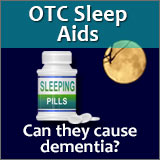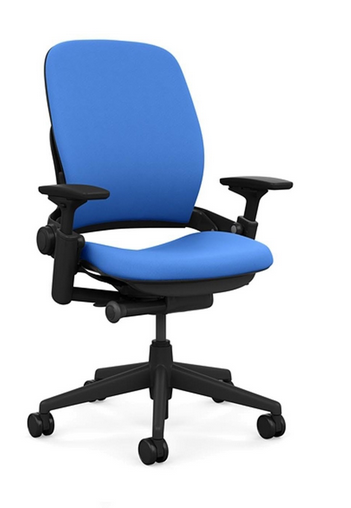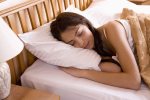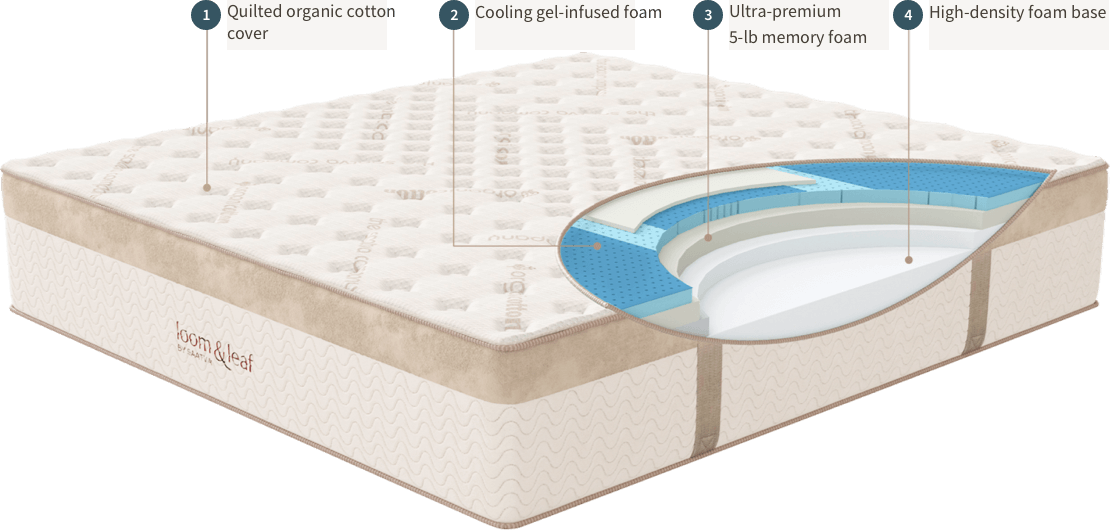Sleep Apnea and Weight Loss: 7 Tips
These 7 sleep apnea and weight loss tips will get you started in taking some pounds off.
That's important because losing weight can be a sleep apnea cure for some people with obstructive sleep apnea symptoms.
Also, if you have sleep apnea, and weight loss is something you want to try, discuss your weight loss plans with a family physician or a doctor who is a sleep specialist. You need to find out what kind of condition you're in, especially before you start an exercising program.
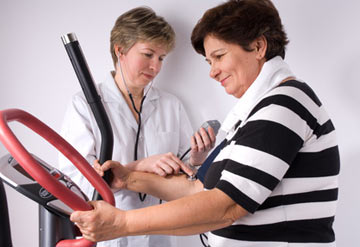
Sleep apnea and weight loss tip #1:
Stand up to sleep apnea
A study in Diabetes Care (April 2008) showed how small simple changes in behavior can help with sleep apnea and weight loss.
The study showed that just standing up and walking around regularly throughout the day for as little as one minute at a time can reduce waist circumference and lower body mass index.
(In case you don't know, body mass index is also known as BMI, which compares your height to your weight. Weight experts use BMI as a measurement of a person's well-being. As an example, a healthy BMI for women would be in the 20 to 25 range.)
Standing up and walking around regularly throughout the day also lowers blood sugar levels and triglycerides (fats in the blood).
So when a television commercial comes on, stand up and walk around the room for a minute or two (and don't go near the refrigerator!).
At work, stand up when you answer the phone or check your email. In fact, whenever and wherever you are on the phone, make it a habit to get up and walk as you talk. No one will ever know and you'll be burning off calories effortlessly.
Fitness tip #2: Lose 10% of your weight
Never think to yourself "I have to lose 20, 30, or 40 pounds." That may be too discouraging. Instead, take baby steps. Think about losing one pound. Then another pound after that first one.
To lose that first pound, start a walking program with a friend--dog or human. If you're out of shape, start slowly that first week. The first day, walk slowly for 5 minutes to warm up, then walk a little faster for 5 more minutes, then walk slowly for 5 minutes to cool down. Try to do that for at least three times per week.
Each week increase the time you are walking faster: 5 minutes warm up, 7-10 minutes fast, 5 minutes cool down. Eventually, as you get in better shape, gradually increase your brisk walking time and work your way up to a daily 45 minute walk.
The more fit you become, the more intense your workouts will need to be in order to burn off fat. That means faster walking, walking uphill, getting an exercise bike, or lifting weights.
Fitness tip #4: Calorie cutting without dieting
Here's an ingenious little tip for cutting calories without exercising or dieting. (My apologies to the source because I can't remember where I got this from.) When eating out, ask for the doggie bag for the leftover food before they ever bring you the meal. Then when the meal comes, put a portion of it into the doggie bag before you start eating.
Sleep apnea and weight loss tip #5: Park and walk
Park several blocks from the store or far out in the parking lot and then walk the rest of the way to the store. And get out of the car and walk into the bank or dry cleaners instead of using the drive-up. Result: Little calorie-burning workouts that don't seem like workouts.
Fitness tip #6: Lose weight while you sleep
Walking briskly for 30 to 45 minutes a day not only burns calories during waking hours, it also helps to burn calories when you're sleeping. Why? Because physical activity builds muscle and boosts your metabolism. Also, that daily exercise will help you boost energy during the day and reduce stress levels.
And if you have insomnia, walking will also help you sleep better at night. That's important for avoiding sleep deprivation. Here's why.
A study published in the Archives of Internal Medicine (January 10, 2005) found that sleep deprivation effects body weight. Researchers said: "Reduced amounts of sleep are associated with overweight and obese status."
The reason is because lack of sleep causes an increase in levels of a hormone called ghrelin (pronounced Gray-lynn). This hormone stimulates appetite so you want to eat more. Lack of sleep, sleep apnea and weight gain then become a triple unhealthy combination.
Sleep apnea and weight loss tip #7: A great weight loss book
One of the best books I have ever read for losing weight was written by John A. McDougall, M.D. The book is called The McDougall Program For Maximum Weight Loss. Get the book. Read it. Follow it.
Whether you have mild sleep apnea or severe sleep apnea, this book can help you lose more pounds. And you won't be hungry while you're taking the weight off.
One last thing to keep in mind
Update: I wrote an article for my Sleep Chat newsletter (sign up for Sleep Chat on the home page) about hidden chemicals that make people fat.
I also wrote another article called 11 Healthy Weight Loss Tips. I recommend you read both articles to help with your sleep apnea and weight loss goals. See links below.
Getting started is always the hardest part. And if getting started
for you means walking around the living room for 3 minutes the first few
days, that is just fine. It's far easier, psychologically, to reach
small goals and not give up. Something as simple as cleaning the house
for 30 minutes is a workout.
The key to producing big and lasting results with your sleep apnea and weight loss goals is to take a gradual and consistent approach over several months. Rapid weight loss is unhealthy and never works long term. So get moving! And never, ever give up.
11 Healthy Weight Loss TipsHidden Chemicals That Make People Fat
Return From 7 Sleep Apnea And Weight Loss Tips To 23 Dangerous Sleep Apnea Symptoms
Return To Sleep Disorders Home Page





